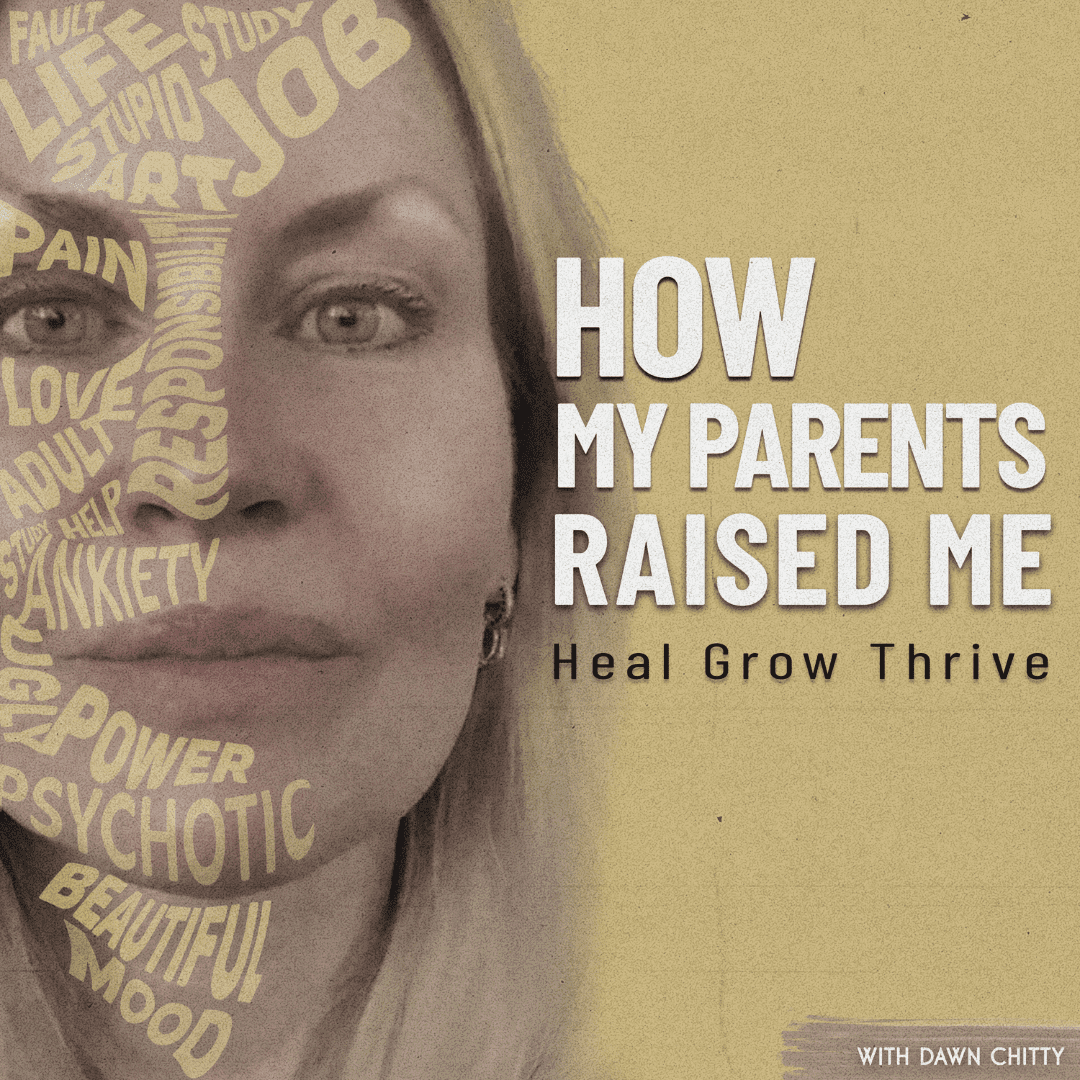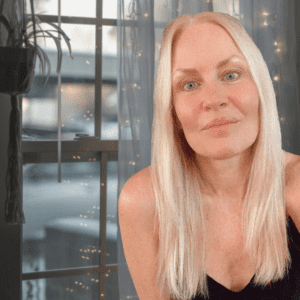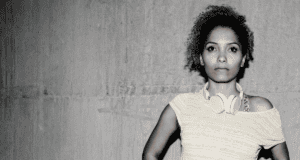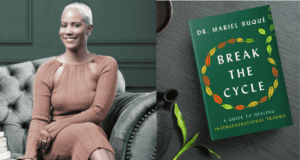best Way to Controlling Childhood Trauma
Micha’s father was very controlling. Micah describes the level of vigilance and discipline as militant. In the morning she would make her bed and there would be bed checks to ensure there were no wrinkles. Things in her home were color coded. Everything had to be meticulous.
And if the standard wasn’t met, the stakes were very high in terms of consequences. On the other hand, Micha saw her Dad as having a mysterious command of nature and a real charisma. He could walk into a room and light it up.
Micah’s family were deeply into the church. They were at church Sunday in the morning, Sunday at night and Wednesday evening every week. And those religious beliefs were all consuming.
The combination of a controlling religious environment and a highly militant and controlling father left Micah with a high level of trauma. Here we unpack with Micah Stover the trauma and beliefs that came from those formative years and her first steps into healing.

Top 8 Ways A Controlling Childhood Leads To Trauma
1. Menstruation Was A Punishment
At church we were told that, as women, we are punished every month through our cycle for being curious. We had to experience pain every month. And that pain culminated in childbirth when we really had to suffer and struggle because of what we did in the Garden of Eden. This was the narrative that defined my orientation to being a girl and a woman.
I remember very specifically one Sunday at Sunday school, a little boy in the Sunday school class kissed me on the cheek. I ran like my feet were on fire just as fast as I could to the bathroom in the church and scrubbed my face because I felt so much fear of contamination and did not want to break any of the rules.
2. As A Girl My Value Was Decided by Men
I believed as a young girl that I didn’t have a lot of value and my value was only as deemed by men.
If I was pleasing, if I was acceptable, if I was pretty enough, but not too much to be provoking, if I was smart enough, but not too much to be provoking, if I was all of these things, but just in the right perfect proportion to warrant acceptance and non threat, then I was safe.
3. I Am Not Clean
I remember this very, very viscerally. I became very OCD about washing my hands constantly. Maniacally washing my hands.
I think some of this stemmed from the belief that everything had to be so meticulous all the time. I was terrified for it not to be. And there was that evangelical backdrop where you don’t want to be dirty, you don’t want to be sinful, you don’t want to be contaminated in any way. So I just took it all the way.
My little knuckles would be bloody from being so chapped from washing them. And then I think there was another instance several years later, around eight years of age, where suddenly I just had this intense pain in my neck. And they were doing all these tests trying to figure out what was going on.
I had to wear one of those little neck braces and they never did figure out what was wrong with me. Knowing what I do now about trauma, I think it was just my body’s way of screaming for help from the pain and the stress and the pressure that my seven, eight year old system was under.
4. Eating Disorders & Lack Of Control
By the time I was 12 or 13, I was already starting to develop a pretty serious eating disorder. At the root of that were two fundamental things. Firstly, control. I had nothing, including my own being, that was in any way in my agency or control.
So I started to control food because it was one thing I could control. And secondly in my house there was a preoccupation around discipline. My Dad had a real hangup with people being overweight, because that reflected a lack of discipline.
So he was often chiding my mother for not being fit enough. And as a little kid, I internalized messages that if you eat too much, you might have your mom’s problem.
This was perfect fodder for my developing mind. The raw material to create an eating disorder.
5. Undiagnosed Mental Illness
My Dad was definitely suffering from undiagnosed mental illness. Certainly, he had complex trauma that was never diagnosed. I remember a couple of times we tried to see a therapist and he just could not handle it.
We maybe went twice to a family therapist and I think one of the times he actually just walked out of the room and said, ‘I’m not gonna do this’.
I’ve often wondered if my Dad was on the spectrum in some capacity. I’ve often wondered about bipolar. And without a proper assessment it’s hard to know because trauma can look like so many other things.
6. Permission To Say ‘No’
I would ping pong from complete dissociation and being out of my body, to extreme hypervigilance and control. My spirit, would ping pong back and forth, trying to dodge bullets, so to speak, because it all felt very unpredictable. Sometimes things were okay and good and then they could change on a dime.
Because of the eating disorder I had, I passed out at the wheel of the car. I had a terrible car accident, because I was so malnourished. I wasn’t eating. I was living on 200 calories a day for a very long time. And that’s not very sustainable.
When I came out of that experience, they took me to a rehab center. They said, ‘something’s wrong, fix her’. And that was definitely a turning point for me. I remember working with a therapist at that point in time and I remember telling her the things that went on at home.
And my therapist told me, ‘do you know that this stuff that you’re telling me is not normal and that you have permission to say ‘you can’t do this to me’’. And that was the craziest, most novel thought I’d ever heard. Because I didn’t know that. My Dad told me my whole life I was his. I belonged to him.
My therapist said to me, ‘if he threatens you again at the house, I don’t care what time of day it is, I want you to call this number.’ And she gave me her after hours emergency number. So within weeks of that conversation, it happened again and I said to him, ‘I’m gonna call her. You can’t do this to me anymore’. And I called her and she made him get on the phone with her. And it was such a surreal experience, looking back at that moment through the lens I have now.
I can see how everything shifted in that moment. I remember him skulking to his room after what was technically, I think, a reprimand from the therapist saying, ‘if you continue to threaten her, I will call the police. It’s not acceptable’. So what I actually learned in that moment was how to set a boundary. That I get to set a boundary. I’d had no education in that, prior to that moment.

7. Stepping Out Of My Traumatic Environment
I started college. I studied Asian philosophies, which was just a total shock and awe for my evangelical family in Tennessee. And, it was so incredibly healing to escape. It felt like ‘Oh God, what did I just get out of? And where am I now?’ And there’s this whole other world and they think so differently and I don’t even have to believe any of those things anymore’.
On some level I totally ran away from my problems and I still had to come back and deal with them. But I also think for me, that definitive break and line in the sand was such a critical part of my healing.
Read More: 3 Steps To Heal From Devastating Childhood Neglect
8. My First Sexual Experience
My first sexual experience was terrible. This is my truth. I did not feel I had permission to say ‘no’ because the way I’d been raised was that I had to be pleasing and that men were in charge. And that was really the patriarchal model that was handed to me.
I was dating a boy. We were friendly, but he kind of intimidated me a little bit. But that was familiar because so did my dad. And so it made me think that I liked him because I didn’t know any better. And we were making out as young teenagers do. And then there was a pressure for more, and there was a strong desire in me for it to stop, for so many reasons.
And I kept saying, ‘I don’t feel ready, I don’t feel ready’. And he just didn’t stop. And part of me felt like this was a moment I knew was coming, and I just wanted the bandaid to be ripped off and for it to be over and then to try to fix myself later.
I had no agency, so I just wanted it to be over. I tried my best to say ‘no’. I wasn’t shocked that I wasn’t listened to. I think my ‘no’ was probably meek. So the boy probably didn’t know how serious to take it, even though, of course, he should have heard that I was saying I wasn’t ready. The whole thing was a mess.
And now I’ll tell this story as many times as I can in the hopes that some girl listening, who doesn’t feel agency and power, can hear me say, ‘you get to say ‘no’. And it can be loud and it can be strong, and it can be yours’.
Micah Stover is a Consciousness Coach, Trauma Survivor & Trauma Midwife. She works with survivors in Trauma Recovery and Psychedelic Somatic Therapy.
You can connect with Micah HERE.










